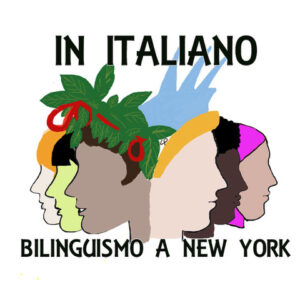Bilingualism and multiculturalism matter, now more than ever, at this time of illness, death, loss and social unrest. Not only are bilingual children a resource, but also the whole multiculturalism which comes attached to bilingualism makes children and entire communities aware of other people’s perceptions. Those who speak more than one language, in other words, are more able to switch from their own to others’ points of view. It means that they have to step out of their own language and world, to understand others. The many benefits of multi-language and multiculturalism were reiterated by Prof. Antonella Sorace of Bilingualism Matters during her remote presentation organized by Ann Nicol of UNA-NYA a few days ago (the webinar can still be watched on http://www.unanyc.org/events/2020/20200603_sorace.htm ).

Regrettably, in countries like the UK and the US, where we see a situation which has been defined as ‘privileged monolingualism’, not very many people speak or learn foreign languages: according to the American Community Survey of 2015, 20.8% of Americans speak a language other than English. On the other side of the pond, in the UK, the lack of language skills has produced a loss which costs the UK economy about£48bn. More can be learned from Prof. Sorace’s presentation and from the book she’s co-authored Il cervello bilingue, as well as from La rivoluzione bilingue by Fabrice Jaumont. Both books have been beautifully reviewed by bilingual supporter journalist and public administrator Dr. Giuseppe Corongiu, who participated in the 2019 Bilingual Fair at Fordham.
It goes without saying that the recent school lockdown has generally not helped multilingual learners, although not-for-profit organization InItaliano has provided resources, a YouTube channel of activities, video reads in Italian, and ESL support. Conscientious public school administrators and teachers have done their absolute best to feed children’s multilingual interest remotely, and to support the Italian multilingual programs’ expansion. So, against all odds, the children of PS242M and their teachers have thrived and the school has registered a peak of enrollment requests. PS132K has made a request to expand its program to the DOE’s central office and PS112K will be expanding up to 4th grade next year. Furthermore, rumor has it that another community of parents is appealing to start an Italian pre-k class in a different district: New York è un po’ più italiana!

The necessity of learning how to talk to children about Covid19 has motivated some of us to contribute with three wonderful books. Artist and author Deana Sobel Lederman, and translator Stefania (InItaliano) have teamed up to complete a series of three different stories which take place during the Covid19 crisis. The first book of this series is about Noah Henry, a boy who, albeit initially struggling to understand what is happening around him, is then able to project himself into a more rosy future, in which he and his friends will be able to play together again, be happy and enjoy life.
Noah Henry has already received positive reviews; it has been featured by the National Children’s Museum, the Minnesota Children’s Museum and it is being read in schools all over the world. The three stories have already been translated into Japanese, Spanish, Italian and French. They will soon be translated into Russian, Portuguese and Chinese, all (including the original books in English) to be published by TBR Books and Calec.
Buona lettura!
You can order your copies here:
https://www.tbr-books.org/product/lezione-di-cucito-preordine
https://www.tbr-books.org/product/festa-in-mascherina-preordine
https://www.tbr-books.org/product/noah-henry-preordine
To know more about Italian Dual Language programs and to continue to support our work, visit www.dlitaliano.org/donate
Teachers and families who are interested in the Italian programs taught in public schools can reach Stefania, Benedetta and Francesco via email gro.onailatild@ofni
Stefania, Benedetta e Francesco (InItaliano – Bilinguismo a New York)










